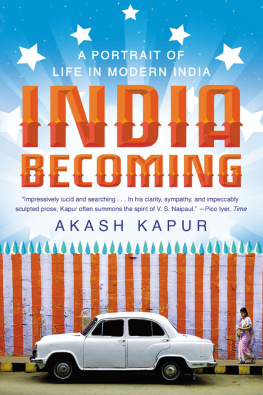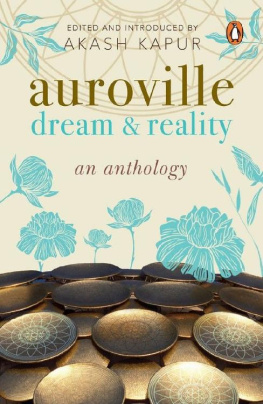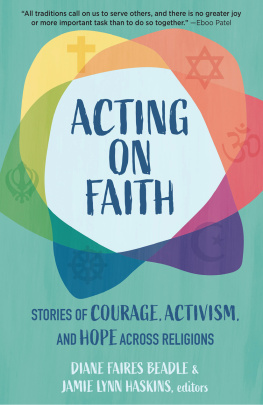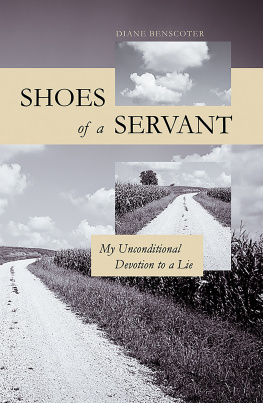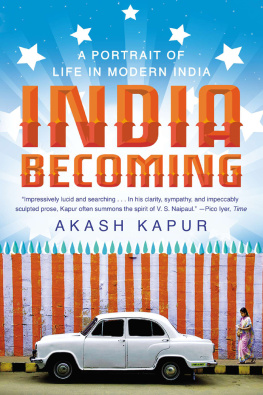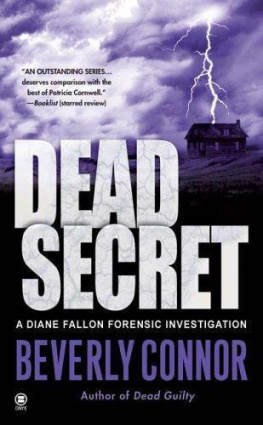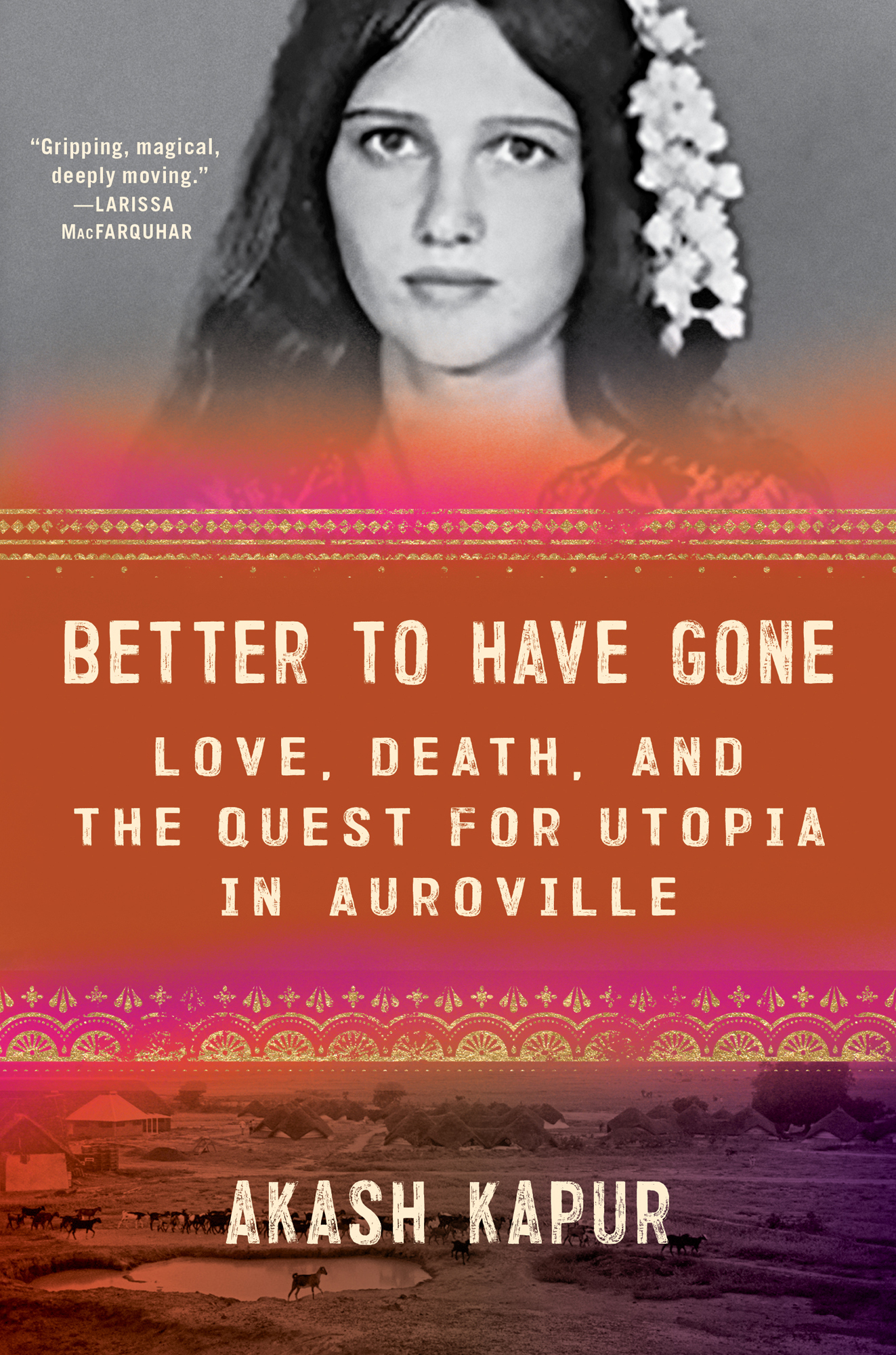Contents
Guide
Gripping, magical, deeply moving.
Larissa MacFarquhar
Better to Have Gone
Love, Death, and the Quest for Utopia in Auroville
Akash Kapur
PRAISE FOR AKASH KAPUR
For Better to Have Gone
Akash Kapurs gripping quest for understanding transports us in the fullest, most satisfying sense. He renders his world with vivid, masterful grace, but he also pulls us into the interior of desires and frailties at a depth that approaches the finest of fiction. Anyone who thirsts for reinvention should read this book as an inspirationand as a warning.
Evan Osnos, winner of the National Book Award and author of Age of Ambition, Joe Biden, and Wildland
Akash Kapur has written a trenchant, nuanced account of the longing for a perfect world. Working from personal experience and a writers profound curiosity, he takes us deep into the heart of an intentional communitys ambitions and failures. This is an important work about the eternal human desire for utopia, and about the dystopia that always lurks within these dreams.
Vikram Chandra, author of Sacred Games
This book is a moving fusion of memoir, history, and ethnography that will inject new life into these forms. As an investigation into an unsolved mystery, it is compelling; as a meditation on the promise and the limitations of utopianism, it could have global resonance. The writing is unornamented, plangent, and affecting. By evoking the everyday in precise detail, Kapur brings utopianism as lived practice to technicolor life. In attempting to locate the shifting border between extremism and idealism, he has written a book rooted in memory but in dialogue with the present day.
Jury citation for the 2018 Whiting for Creative Nonfiction Grant
For India Becoming: A Portrait of Life in Modern India
Lucid, balanced Kapur is determinedly fair-minded, neither an apologist nor a scold, and he is a wonderfully empathetic listener.
The New York Times Book Review, Editors Choice
In his clarity, sympathy, and impeccably sculpted prose, Kapur often summons the spirit of V. S. Naipaul.
Pico Iyer, Time
A wonderful writer: a courageously clear-eyed observer, an astute listener, a masterful portraitist, and a gripping storyteller.
Philip Gourevitch, author of We Wish to Inform You That Tomorrow We Will Be Killed with Our Families
Akash Kapur lives in and writes out of an India that few writers venture into. Curious, suspicious of received wisdom, and intellectually resourceful, [Kapur is] one of the most reliable observers of the New India.
Pankaj Mishra, author of Temptations of the West: How to Be Modern in India, Pakistan, Tibet, and Beyond
ALSO BY AKASH KAPUR
India Becoming: A Portrait of Life in Modern India
Auroville: Dream and Reality (editor)

Scribner
An Imprint of Simon & Schuster, Inc.
1230 Avenue of the Americas
New York, NY 10020
www.SimonandSchuster.com
Copyright 2021 by Akash Kapur
All rights reserved, including the right to reproduce this book or portions thereof in any form whatsoever. For information, address Scribner Subsidiary Rights Department, 1230 Avenue of the Americas, New York, NY 10020.
First Scribner hardcover edition July 2021
SCRIBNER and design are registered trademarks of The Gale Group, Inc., used under license by Simon & Schuster, Inc., the publisher of this work.
For information about special discounts for bulk purchases, please contact Simon & Schuster Special Sales at 1-866-506-1949 or .
The Simon & Schuster Speakers Bureau can bring authors to your live event. For more information or to book an event, contact the Simon & Schuster Speakers Bureau at 1-866-248-3049 or visit our website at www.simonspeakers.com.
Interior design by Wendy Blum
Jacket design by Sarahmay Wilkinson
Front cover photographs: top, Courtesy of Auralice Graft; Bottom, courtesy of Sri Aurobindo Ashram Archives
Library of Congress Control Number: 2021937885
ISBN 978-1-5011-3251-3
ISBN 978-1-5011-3253-7 (ebook)
Diane, John, Gillian, Auralice (always)
If there is a sense of the real, then there must also be something that one could call a sense of the possible. The possible embraces not only the dreams of high-strung individuals but also the still dormant designs of God. A possible experience or a possible truth is not equal to real experience and real truth minus the value of reality, but possessesat least, in the view of its adherentssomething exceedingly divine, a fire, a flight, a will to build and a conscious utopianism that does not shun reality but instead treats it as a mission and invention.
Robert Musil, The Man Without Qualities
PROLOGUE Unfinished Business
I N THE WINTER OF 2004, I moved with my wife, Auralice, to a town called Auroville. Situated in South India, Auroville is an intentional community on a plateau overlooking the Bay of Bengal. It was founded in 1968 with the ambitious goals of encouraging human unity and fostering evolution. Some people think of Auroville as a utopia, but the people who live there, including my wife and me, reject this label. Utopia is a place thats perfect and that doesnt exist. Auroville is real, and highlyhumanlyimperfect. I guess it would be more appropriate to say that Auroville is an aspiring utopia.
People typically move to places such as Auroville, have moved throughout the ages, because theyre searching for something new. Maybe theyre tired of their lives, maybe they feel alienated by the way the world is. They sell the house, pack their bags, travel to a faraway destination, and hope for a fresh start. But for Auralice and me, our move represented something different. We werent lunging toward the future; we were taking a step back, into the past.
Auralice and I grew up in Auroville. We spent our early years there, in a magical, denuded terrain, a flat desert that felt very remote, both physically and psychologically. We knew each other as kids, and then we went our separate ways in the worldthe real world, as we called itand built lives. Now, more than a decade later, we found ourselves leaving those lives, dismantling the identities we had so assiduously constructed, and moving back to the landscape of our childhoods.
We were living in Brooklyn. We had rented a one-bedroom apartment on Atlantic Avenue, in a prewar building with a brick faade and protruding metal fire escapes. Atlantic was noisy and a little dirty; its honking trucks reminded me of India, but I liked it there. We took the subway into the city, we worked at jobs, we spent our paychecks on the usual thingsclothes and technology, booksand we tried new restaurants on weekends. We had lots of friends; we led good, normal lives.
People asked us why we were leaving all of that, and we didnt have a coherent answer. Sometimes we told them we were homesick. Sometimes we just said we wanted to try something new (though, of course, it wasnt actually new for us). We said things about America being the past and Asia the future. Also, we were horrified by the war in Iraq. I remember riding the subway one day, looking at a photo spread in the New York Times


